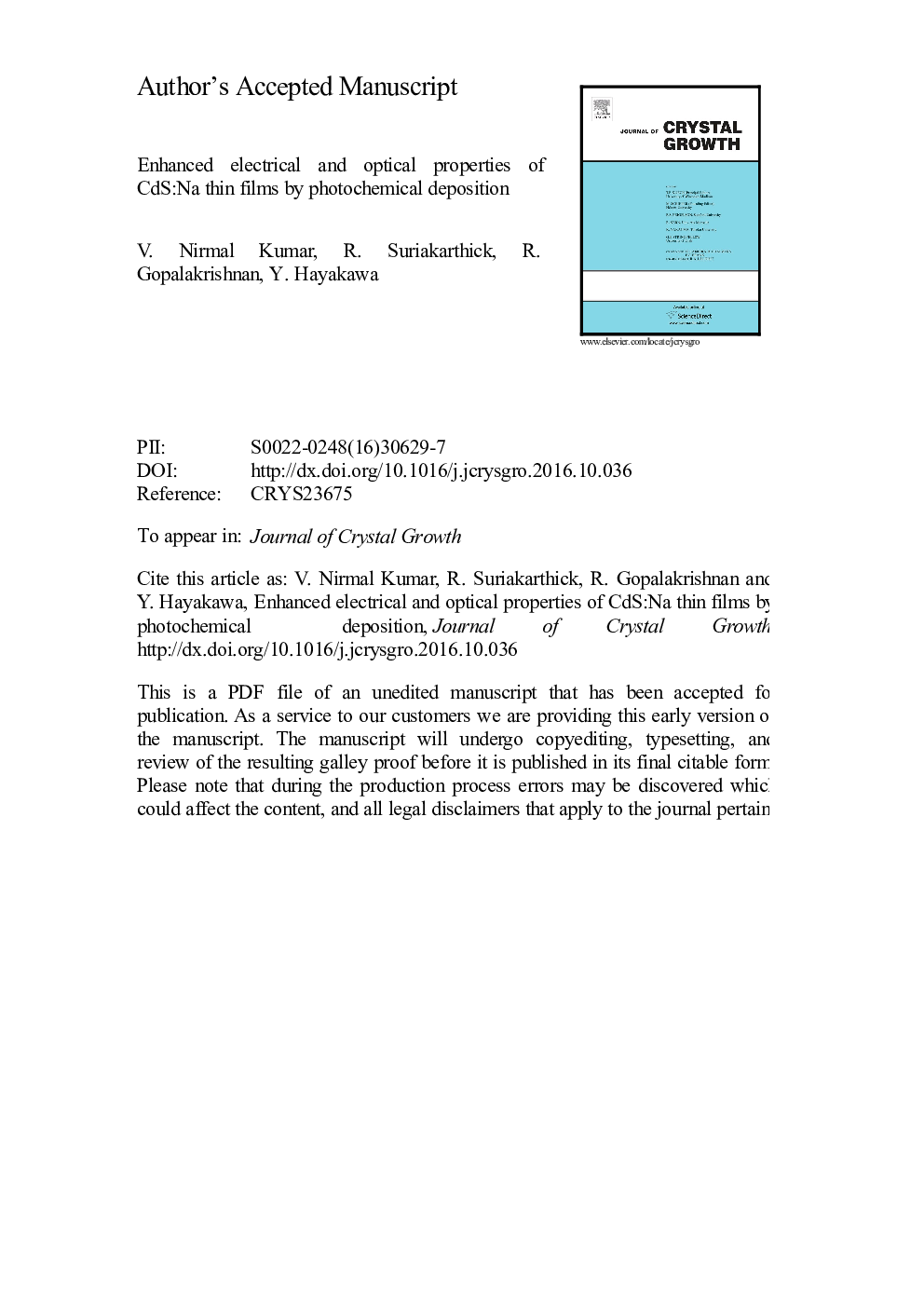| Article ID | Journal | Published Year | Pages | File Type |
|---|---|---|---|---|
| 5489564 | Journal of Crystal Growth | 2017 | 11 Pages |
Abstract
CdS:Na thin film was deposited on a glass substrate by photochemical deposition from aqueous solution contained CdSO4.5H2O and Na2S2O3 as cation and anion sources, respectively. The anion source Na2S2O3 served as Na dopant source. The deposited film exhibited cubic phase of CdS and incorporation of Na was revealed from X-ray diffraction study. The incorporation of Na in CdS changed the surface morphology from spherical to nano rods. CdS:Na thin film showed blue shift in its absorption spectrum which was more desirable for transmitting higher energy photons (visible region) in thin film solar cells. The Raman analysis confirmed 1 LO and 2 LO process at 297 and 593Â cmâ1, respectively. The carrier concentration of CdS increased with the inclusion of Na and its resistivity value decreased. Both the electrical and optical properties of CdS were enhanced in CdS:Na thin films which was desirable as a window layer material for photovoltaic application.
Keywords
Related Topics
Physical Sciences and Engineering
Physics and Astronomy
Condensed Matter Physics
Authors
V. Nirmal Kumar, R. Suriakarthick, R. Gopalakrishnan, Y. Hayakawa,
